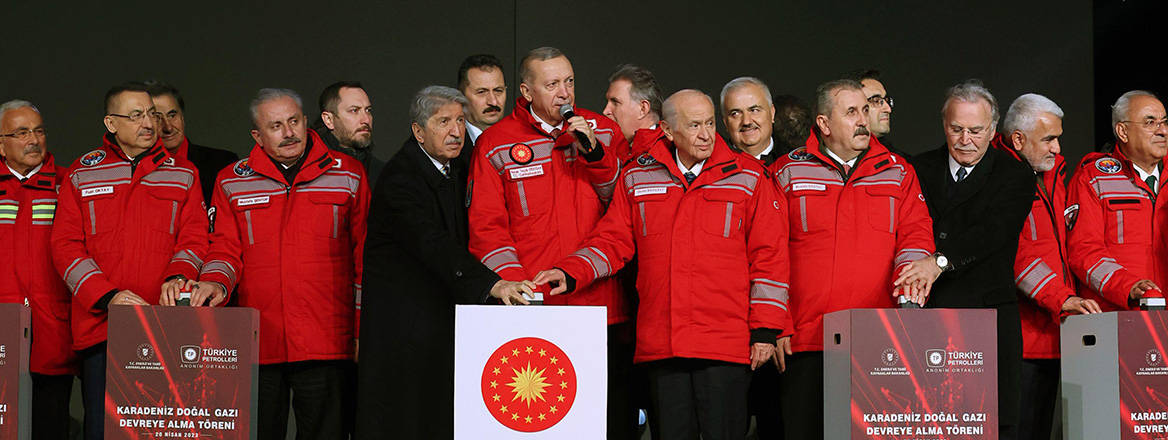Turkey’s New Gas Hub Could be a Boon for a Beleaguered Russia
It also knows that it has a short window of opportunity to recapture at least some of its lost European share until 2025–2026, when the global LNG market is expected to be flooded with additional volumes from the US and Qatar, which are set to double their output by then.
Russia is fully aware that countries such as Germany, which has received pipeline gas in the past, are unlikely to discredit themselves politically by reopening supply corridors such as the controversial Nord Stream route, which was sabotaged last year.
Meanwhile, Ukraine is unlikely to renew a transit contract with Gazprom which expires at the end of 2024.
The only option left is Turkey, which Russia is hoping to use as a springboard to European markets, while also astutely playing into Ankara’s ambitions to project power regionally by controlling the gas flowing in and out of the country.
However, if Ankara expects to be fully in charge of supplies without worrying about Russian pressure, it would do well to remember past episodes such as when Gazprom reduced gas supplies in the middle of the winter of 2014/2015 amid political disputes, or when Turkish importing companies were involved in extensive arbitration cases, some of which they subsequently lost.
BOTAS is currently strenuously denying reports that it owes $27.5 billion (£22.7 billion) to Gazprom and that is has pleaded for debt restructuring. While it is difficult to verify either claim, it is also clear that the government had been using BOTAS to sustain an onerous cross-subsidies scheme to gain political support in exchange for cheap gas to end consumers.
Russian payment deferrals or price discounts on expensive gas imports would be a lifesaver for BOTAS and the Turkish economy, whose inflation rate has been at a 20-year high in recent months and currently exceeds 60%.
Emboldened by the vision of achieving its goal to project regional power through its own brand of gas hub, Turkey may not fully grasp the fact that depending on Russia to achieve that ambition could leave it highly vulnerable to political and economic blackmail.
Regrettably, Europe’s mercurial energy companies – currently knocking on Turkey’s doors, eager to snap up profitable deals for Russian gas sold under different labels – have already forgotten that, as last year’s energy supply crisis showed, cheap gas comes with high security costs.
The views expressed in this Commentary are the author’s, and do not represent those of RUSI or any other institution.
Have an idea for a Commentary you’d like to write for us? Send a short pitch to [email protected] and we’ll get back to you if it fits into our research interests. Full guidelines for contributors can be found here.




